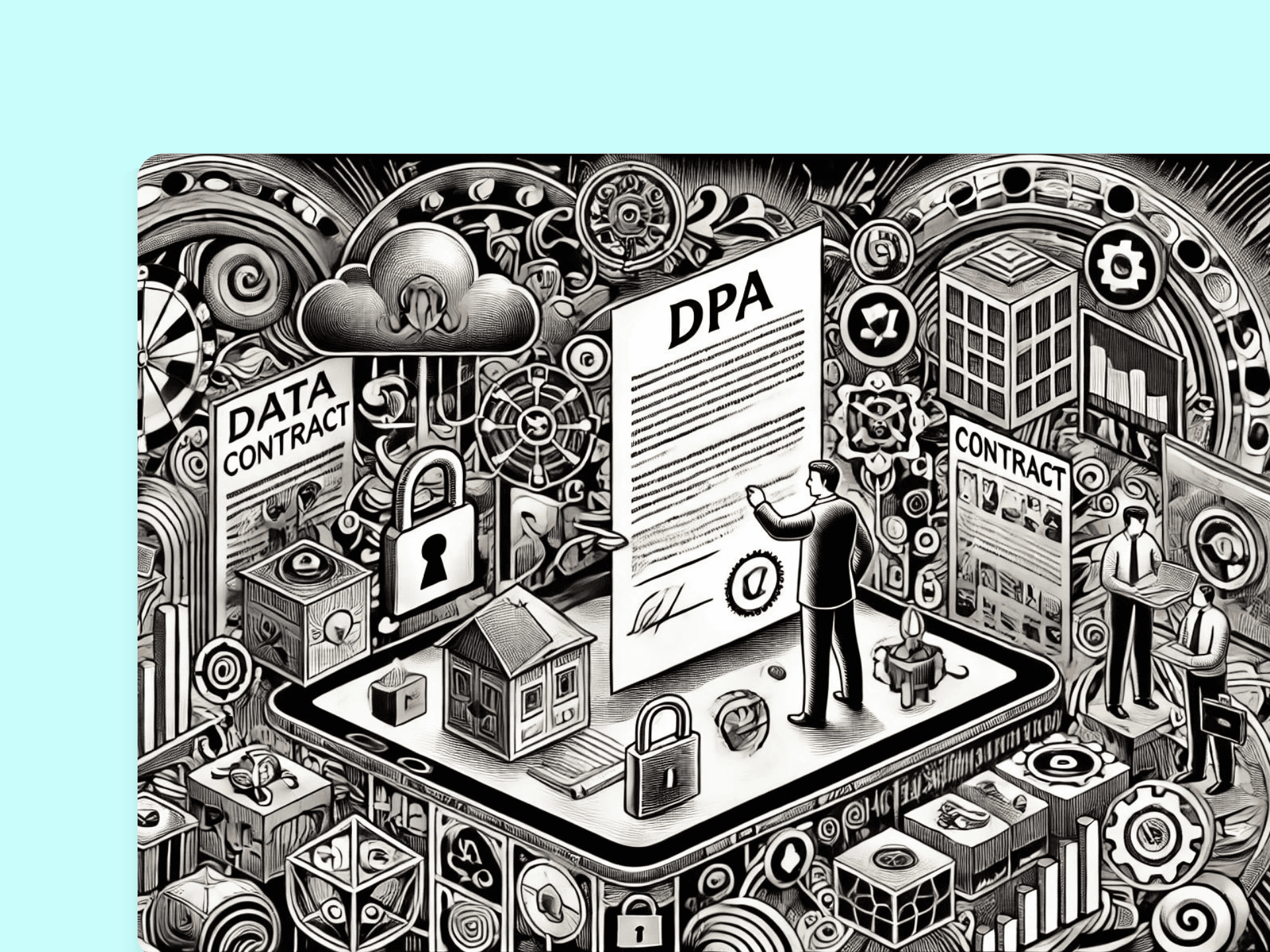What is a Data Processing Agreement (DPA)?
Why and when do businesses need it
With increasing regulations on data privacy, it's essential to understand how to handle personal data legally and securely. A crucial tool in this regard is the Data Processing Agreement (DPA). This article will explain what a DPA is, why your business needs one, and the key regulations that mandate its use.
What is a Data Processing Agreement (DPA)?
A Data Processing Agreement (DPA) is a legally binding document between a data controller and a data processor. It outlines the scope, purpose, and nature of data processing activities, defining the relationship and responsibilities of both parties. The DPA ensures that both the controller (the entity that determines the purposes and means of processing personal data) and the processor (the entity that processes data on behalf of the controller) understand their obligations, especially regarding data protection and privacy.
Why Do Businesses Need Data Processing Agreements?
Running a business often involves handling personal data, whether it's through customer relationship management (CRM) systems, cloud storage, marketing platforms, or website analytics. Whenever your business exchanges personal data with third parties, having a DPA in place is crucial. Here’s why:
Legal Compliance: Various data protection regulations, such as the EU's General Data Protection Regulation (GDPR) and the California Consumer Privacy Act (CCPA), mandate DPAs to ensure lawful data processing. Non-compliance can result in hefty fines and legal repercussions.
Clear Responsibilities: A DPA clearly delineates the roles and responsibilities of both the controller and the processor. This clarity helps prevent misunderstandings and ensures that both parties adhere to data protection standards.
Data Security: DPAs require processors to implement adequate security measures to protect personal data. This is vital for safeguarding your business and customer information from data breaches and cyber threats.
Accountability and Transparency: Having a DPA demonstrates your commitment to data protection, fostering trust with customers and partners. It also ensures that data processors are accountable for their actions, providing transparency in data handling practices.
Key Data Protection Regulations Requiring DPAs
Several global data protection laws require businesses to have DPAs in place when handling personal data. Some of the key regulations include:
EU GDPR: The General Data Protection Regulation mandates DPAs for data exchanges involving personal data within the EU.
UK GDPR: Following Brexit, the UK has its own version of the GDPR, which similarly requires DPAs.
US CCPA/CPRA: The California Consumer Privacy Act and its amendment, the California Privacy Rights Act, require DPAs for businesses processing personal data of California residents.
Brazil LGPD: Brazil’s General Data Protection Law mandates DPAs for personal data processing.
South Africa POPIA: The Protection of Personal Information Act requires DPAs to ensure data protection.
Thailand PDPA: Thailand’s Personal Data Protection Act also requires businesses to have DPAs in place.
When Does Your Business Need a DPA?
If your business exchanges personal data with any third-party service providers, you need a DPA. This includes scenarios such as:
Using cloud storage solutions to store customer data.
Engaging marketing platforms to manage customer interactions.
Utilizing CRM systems for customer relationship management.
Implementing website analytics tools to track user behavior.
If you need to draft a DPA but don't already have a template, it's a good idea to use the Standard Contractual Clauses for controllers and processors approved by the European Commission. While the standard clauses might not include any specifics tailored to your data processing operation, they include all of the Article 28 GDPR mandatory clauses and can be directly relied upon in your commercial activity after completing the annexes.
If you want to understand better what type of clauses you need to include in your DPA, read our article "Mandatory Terms for Data Processing Agreements (DPAs)".
Roles and Responsibilities in a DPA
Controller’s Role: The data controller is responsible for defining the data processing activities and ensuring that they comply with data protection laws. They must establish a DPA with any processors they engage. If you're a data controller and want to understand better what types of contractual clauses you should include in your DPA to better protect your interest, read our blog post on "Key Terms for Controllers in Data Processing Agreements (DPAs)".
Processor’s Role: The data processor must process data only as instructed by the controller. Key responsibilities include maintaining data security, reporting breaches, and assisting the controller with compliance efforts. If you're a data controller and want to understand better what types of contractual clauses you should include in your DPA to better protect your interest, read our blog post on "Key Terms for Processors in Data Processing Agreements (DPAs)".
Conclusion
For businesses, understanding and implementing Data Processing Agreements is not just about legal compliance but also about building trust and ensuring data security. As data protection regulations continue to evolve globally, having a robust DPA in place is essential for safeguarding your business and your customers' data. Ensure your business remains compliant, transparent, and secure by establishing and maintaining effective Data Processing Agreements with all your data processors. CuratedAI can help you ensure your Data Processing Agreements meet the GDPR requirements and protect your interests as a controller or a processor. Try it now!

Siyanna Lilova
Jun 5, 2024
Latest posts
Discover other pieces of writing in our blog




